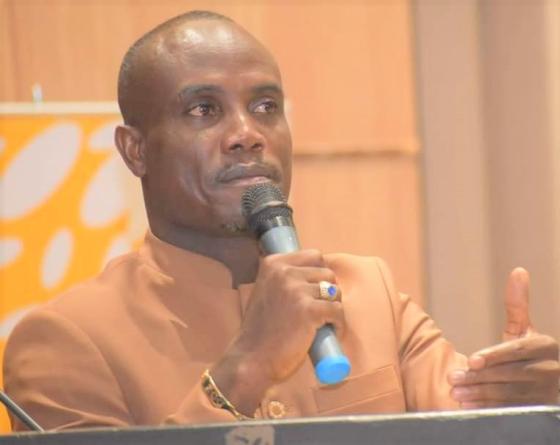Liberia: Defense Ministry Backs Army Chief’s Controversial ‘Caveat’

Minister of National Defense, Major General Daniel Dee Ziankahn, Jr., (Rtd)
The “caveat” from the Chief of Staff of the Army Force of Liberia, which warned political actors in the country to behave, is “in no way a threat and misapplication of authority,” the Ministry of National Defense has said.
“The Ministry of National Defense/Armed Forces of Liberia wishes to clarify [that] the statement on the need to observe the rule of law as citizens of Liberia and a reminder of the Constitutional Roles of the Armed Forces of Liberia as inscribed in the 2008 National Defense Act specifically Chapter 2, Section 2.3 (‘… the AFL shall intervene as a last resort when the threat exceeds the capacity of the law enforcement agencies’) was in no way a threat and misapplication of authority,” the Ministry said in a statement.
The Ministry’s defense comes as AFL Chief of Staff, Major-General Prince Charles Johnson, III, faces criticism for saying that the army may be forced to execute its ‘constitutional duties’ to police the country if the Liberia National Police is overwhelmed.
According to the AFL Chief of Staff, the army will not preempt by going ahead of the police but, when the situation escalates and the police can no longer handle it, they will step in to restore law and order.
However, the remark sent shockwaves across Liberia, with many panicking with reflections on the brutal roles the army has played in the country’s history, especially the bloody military coup d’état of 1980 that took the lives of President William R. Tolbert and scores of his top officials.
The Elections Coordinating Committee described the AFL leader’s caveats as military interference in civil matters, saying that the utterances were meant to instill fear and intimidate the civilian population.
“The statement is completely out of order and a form of the military interfering in civil matters by instilling fear and intimidation of citizens who wish to exercise their Constitutional rights to assemble as guaranteed by Article 17 of the Liberian Constitution,'” Oscar Bloh, the ECC Chairperson said, while also expressing deep concern over the future of freedom of political expression and participation.
“This caveat risks closing the civil space for political participation,” he said.
Maj/Gen Johnson’s statement came on the heels of an attack by unknown men on opposition leader Lewis Brown, during an appearance at a local radio station the night of December 5. The attackers are believed to be apologists of the government.
Brown, a former Minister of Information, is planning a rally to be staged on December 17, but the ruling Coalition for Democratic Change (CDC) party said that the rally is intended to cause chaos in the country, a view many believe provoked the caveat from the army chief.
Chapter 2, Section 2.3 of the 2008 National Defense Act, which the Ministry quoted earlier, stresses that the AFL at no time during peacetime engages in law enforcement, as such function is the prerogative of the police and other law enforcement agencies.
It is also noted that the army can help in restoring order domestically when civil law enforcement agencies are overwhelmed, but said request must come from the President.
“The AFL shall intervene only as a last resort when the threat exceeds the capacity of the law enforcement agencies to respond,” the Defense Act says.
The Ministry however assured Liberians that the constitutional rights of all will be respected at all times.
“There is no need to panic or query the apolitical standing of the current Armed Forces of Liberia,” the statement said. “The AFL remains a Force for Good and will at no time compromise such standing and constitutional responsibilities.
The Ministry also said that the Armed Forces has instituted several measures and training into its setup to enhance its roles and professionalism before, during, and after the 2023 General Elections, as was instituted in past elections.
“The AFL will subsequently support paramilitary institutions and other agencies of the National Government if necessary. It is important to note that sustaining democracy, peace, and tranquility is supreme to our mission,” the Ministry said.
Yet, many have called for the army to stay out of civil matters in order to avoid the unexpected.
